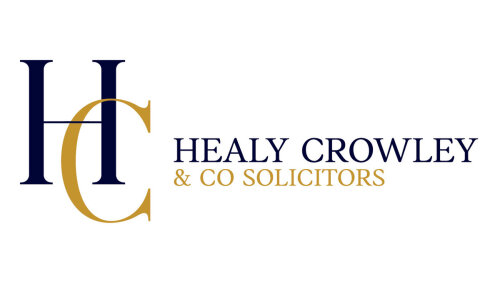Best Administrative Lawyers in Ireland
Share your needs with us, get contacted by law firms.
Free. Takes 2 min.
Or refine your search by selecting a city:
List of the best lawyers in Ireland
About Administrative Law in Ireland
Administrative law in Ireland governs the actions and operations of governmental bodies and public authorities. It ensures these entities act within their legal powers and respect the rights of individuals. This field of law plays a critical role in how citizens and organizations interact with governmental departments, covering areas such as public procurement, regulatory compliance, and judicial reviews. It serves as a mechanism to hold public authorities accountable and provides a framework for fair decision-making.
Why You May Need a Lawyer
There are various situations where you may require legal assistance in administrative law. Common scenarios include challenging a public body's decision that adversely affects you, such as denial of permits or licenses; seeking redress for administrative actions taken without proper authority; requiring guidance on compliance with regulatory frameworks; or addressing issues related to data protection and privacy laws. Lawyers specializing in administrative law can provide crucial support in navigating complex legal frameworks and ensuring your rights are upheld.
Local Laws Overview
Administrative law in Ireland is principally shaped by the Constitution, which enshrines the principles of fairness, legality, and accountability. Key aspects include:
- The principle of proportionality, which requires that administrative actions be proportionate to the objectives sought.
- Judicial review, allowing courts to assess the legality of administrative decisions.
- Statutory instruments, often used to implement EU directives and regulations, also play a significant role.
- The role of the Office of the Ombudsman, which provides an independent avenue for redress in cases of maladministration.
Frequently Asked Questions
What is the role of judicial review in administrative law?
Judicial review is a process where the courts examine the actions of public bodies to determine if they acted within their legal authority. It ensures that decisions are lawful, reasonable, and made according to fair procedures.
How can I challenge a decision made by a public authority?
To challenge a decision, you may file an application for judicial review in the High Court. It’s advisable to consult a lawyer to ensure your application is accurately prepared and submitted within the time limits.
What is the Ombudsman, and how can they help me?
The Ombudsman investigates complaints about maladministration by public bodies. They provide an independent assessment and can recommend appropriate remedies, although their decisions are not legally binding.
What are statutory instruments, and why are they important?
Statutory instruments are a form of delegated legislation, allowing government ministers to make detailed legal regulations under frameworks established by Acts of the Oireachtas. They are essential for implementing and enforcing laws efficiently.
What is the principle of proportionality in administrative law?
Proportionality ensures that actions taken by public bodies do not exceed what is necessary to achieve the intended objective. This principle protects individuals from excessive or arbitrary use of power.
How does administrative law interact with EU law?
Administrative law in Ireland must comply with EU directives and regulations. The European Communities Act 1972 allows for the integration of EU law into domestic law, and Irish courts often consider EU principles in administrative cases.
Can I appeal an administrative decision outside the court system?
Yes, many public bodies have internal appeal mechanisms or independent tribunals. Exploring these options before pursuing judicial review can often be a faster and less formal path to resolving disputes.
What timelines must I be aware of when seeking judicial review?
Applications for judicial review must generally be made promptly, and certainly within three months from the date when the grounds for application first arose, unless the court extends the time for good reason.
Do I need a lawyer for all administrative legal issues?
While you can navigate some issues independently, legal guidance is highly recommended for complex or significant cases to ensure compliance with procedural requirements and develop a robust case.
What costs are involved in administrative law cases?
Costs can vary significantly depending on the complexity of the case and the legal services required. It's beneficial to discuss costs upfront with your lawyer and explore potential for legal aid if eligible.
Additional Resources
For those seeking further information or legal assistance in administrative law, consider contacting:
- The Law Society of Ireland for referrals to qualified administrative law practitioners.
- The Office of the Ombudsman for support in cases of public maladministration.
- Citizens Information for guidance on rights and entitlements.
- The Irish Human Rights and Equality Commission for issues related to equality and discrimination in administrative actions.
Next Steps
If you believe you need legal assistance in the realm of administrative law, start by identifying the specific issue or decision you wish to challenge or better understand. Gathering all relevant documentation and evidence will be crucial. Contact a legal professional experienced in administrative law to discuss your situation, explore all available options, and decide on a course of action tailored to your circumstances. Remember, acting promptly is vital, particularly given the strict timelines for judicial reviews.
Lawzana helps you find the best lawyers and law firms in Ireland through a curated and pre-screened list of qualified legal professionals. Our platform offers rankings and detailed profiles of attorneys and law firms, allowing you to compare based on practice areas, including Administrative, experience, and client feedback.
Each profile includes a description of the firm's areas of practice, client reviews, team members and partners, year of establishment, spoken languages, office locations, contact information, social media presence, and any published articles or resources. Most firms on our platform speak English and are experienced in both local and international legal matters.
Get a quote from top-rated law firms in Ireland — quickly, securely, and without unnecessary hassle.
Disclaimer:
The information provided on this page is for general informational purposes only and does not constitute legal advice. While we strive to ensure the accuracy and relevance of the content, legal information may change over time, and interpretations of the law can vary. You should always consult with a qualified legal professional for advice specific to your situation.
We disclaim all liability for actions taken or not taken based on the content of this page. If you believe any information is incorrect or outdated, please contact us, and we will review and update it where appropriate.
Browse administrative law firms by city in Ireland
Refine your search by selecting a city.

















